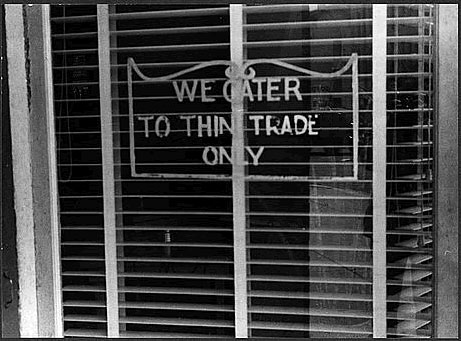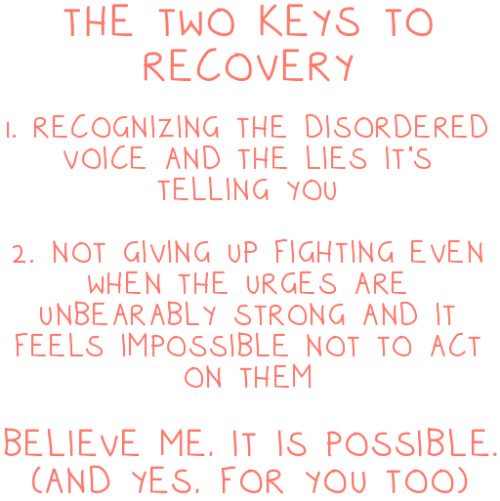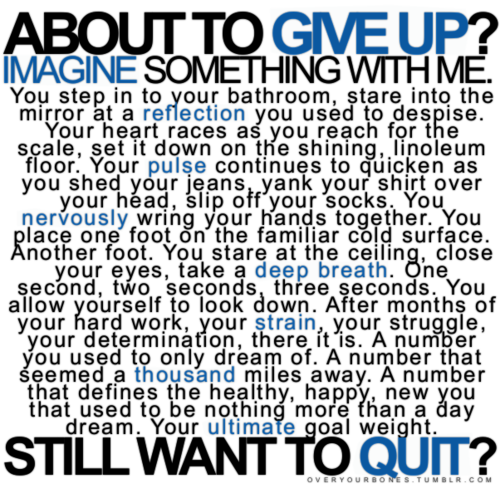 |
| Fit, fat, fuck yeah! |
If you are interested in fitness and healthy eating habits, please continue.
Recently I became the moderator of a subReddit called askHAES. There came a pretty good post that talked about fitness goals that I would like to share and discuss a little:
Hello, HAES people.I like this as it really does reflect the thought process of a "serious athlete." For a lot of athletes, and even fathletes like myself, measurement in physical progress is more important than physical appearance. The guys I work out with talk about running marathons, jumping hurdles, climbing mountains, or snatching heavier, not about their weight. Their goals are performance based. Even if your goal isn't being able to run a 5k, you can make performance goals as well, like being able to walk up the stairs without almost dying halfway through (heh, this was my goal when I was starting out). Anyway, let's start at the top.
I wanted to bring up a subject that I think some of you might find worthwhile. Here's the deal: I'm not telling anyone here they need to exercise or train at all. That's your call.
That said, if you choose to train, I'd recommend the following general rules. They're pretty simple.
Finally, a note. Forget about what someone's definition of attractiveness is. Train to do something, not to look some specific way. This is another white rabbit. Here's a truth: you're never going to be pretty enough for everyone. That shit is subjective anyway. You know what's not subjective? Trashing someone in a 5k when six months ago you couldn't even finish one.
- Throw away the scale (unless you're trying to make weight for a tournament or something). This one's especially important for women. I've seen girls literally go the scale immediately following a tough workout to see what they've lost. Pointless. Weight is going to fluctuate from day to day, and upon initiating serious training many people will actually gain weight as their muscles begin retaining more water as they adapt to the increased workloads. Seriously, stop looking at the scale.
- Pick a goal that you can measure. Here's the magic: you get to set these, not society, not your friends, not your family. You. They're your goals. When I ask people what their goals are, 9 times out of 10 they'll say, "I want to be in shape" or "I want to look better." Neither are really useful, but the former is better than the last one. Here's the deal: pick a few performance-based tasks which are quantifiable (e.g. run a 5k in X amount of time, or squat 275 lbs., whatever) and make sure they're reasonable for where you're at. If you've been away from exercising for 20 years, it's probably unreasonable to say you're going to run a marathon in 4 months. Stay away from, "I want to weigh X in Y amount of time." That's a white rabbit you'll chase forever. Pick good performance-based goals, and I promise you that your body will adapt as it should.
- Now, take an initial (honest) assessment of where you're at with respect to your goals. Write it down. Don't bullshit the assessment. Don't say, "well, I ran this in 20 minutes, but I was under the weather; it was really 18 minutes." Nope. It was 20.
- Develop a plan. If you're a novice, get smart or get some help. Make sure the plan aligns with your schedule. Guess what, if you work 60 hours a week and have three kids, you're not going to be able to stick with a program that calls for 4 hours of training 5 days a week. You're setting yourself up for failure.
- Train hard. No bullshit. No excuses. Get it done. When it's time to train, that's all that's going on in your life. You're not reading. You're not thinking about work, or your significant other, or any of life's little dramas. You're not even worrying about where you'll be with respect to your goals next week, next month, or next year. You're only there to do the work. Anything less is a waste of time. I see people at the gym on the treadmill for half an hour walking, reading "Self" or whatever. I don't say a damn thing to them, because it's not my problem. But, guess what? They're wasting their own time. Why spend 30 minutes half-assing something, when you could be doing it for real? It's your time. My time is a precious resource; I have no intention of wasting it.
- Re-assess regularly, but not all the time. I typically put together 8-week training programs and assess at the 4, 6, and 8 week marks. If you're starting off, you're going to need more time, especially if you've got a busy schedule and don't have as much time to dedicate it. For true novices, I build 16-week programs.
That's my take. Again, I stress that I couldn't care less whether anyone here trains or not. Not my problem or my business. I only want to give people here an honest look at how serious athletes think about training. It ought to put your mind at ease. They don't care about looks; they care about performance.
-Ragnar
 |
| This is "bulk." |
By the way, while we are on the subject of muscles and retaining water, it is good to note now that women do not bulk like men do. Women don't have enough testosterone in their body to gain massive amounts of muscle quickly and are more likely to "tone" and build than bulk.
And before you ask: yes, fat people can be toned as well.
2) Goals are important, but they have to be attainable. It was a good year and a half before I was fit enough to run without joint pain, and about 8 months before I really noticed a difference in my stamina. Fitness is long term, but that doesn't mean you have to hate the journey. More on that later. For now, think about some good goals to set. I think you should probably take an assessment before you move into specifics, but again, more later.
3) Honesty here will be a boon later, and write. it. down. so you can see your progress. If your goal is "being able to walk up the stairs without keeling over", go climb the stairs and count the number you make and the time you did it in. Note your breath, as in whether you were gasping or not. While Ragnar might have been harsh, it really is important that you are very honest with this.
4) There is this great site that I will recommend forever. Bodybuilding.com is full of awesome resources for people of all fitness levels, from fitness articles to already made fitness plans to an awesome shop and more. With the fitness program, you can either try the ones listed or you can find a specific one for your age and fitness goal. I personally like LiveFit since it has a great progression built in along with specific exercises for specific days and all the information is already there. Yes, it does talk about weight loss but the muscle building results are amazing. Jamie Eason (the one who created the program) also has a great head on her shoulders and doesn't shy from speaking her mind.
Note: if you wander around the site, there is talk about weight loss. Ignore it, there is so much more than that.
 |
| Options: you haz them. |
5) I would say just to do your best. I feel my best when I work out that day and I feel like crap if I don't, so try not to lapse. If you feel like it is such a chore to go, then something is wrong. If you don't look forward to it, then try something different. Try karate or dancing or kickboxing or boxing or Pilates or yoga or something. There is literally hundreds of options. I think that if you really enjoy something, you will give it 100% and "train hard" for it, even if it is peaceful yoga. And if you can, try EVERYTHING at least twice, even if you think you might look stupid. Why twice? Because if you had a terrible time the first time, you can confirm it or have a better time the next. As for others, you can shake your head at their silliness, but unless they will hurt you or themselves (as in doing an exercise move that will F them up), just go on about your business.
6) Yes, please re-assess. Go back to those stairs and do them again (write it down!). I suggest a 12 week program, or any of the ones on the Bodybuilding.com site linked earlier. Change your routine every 12 weeks too, or your body will adapt and you may not see any more improvement (depending on your goal, of course)
Ragnar sums up pretty well, so I just want to say that I understand that everyone has different commitments. I totally understand having your schedule packed so hard even particles would have difficulty getting through it. Your fitness is yours and no one can tell you what to do. I suggest 30 minutes a day, but hell, it is just a suggestion. This is also why I suggest doing something you love; you will be more inclined to go. Exercise is also a very good stress reliever, and it doesn't have to be in the gym either if that causes stress. My mother hates group exercise and hates the gym, but loves walking outside. One of my friends loves to run but prefers outdoors. Another friend absolutely hates exercise in every form. To each their own.
A nutrition post will be coming soon, but expect it over on Fierce, Freethinking Fatties.
Do you have any recommendations? What do you like to do?






